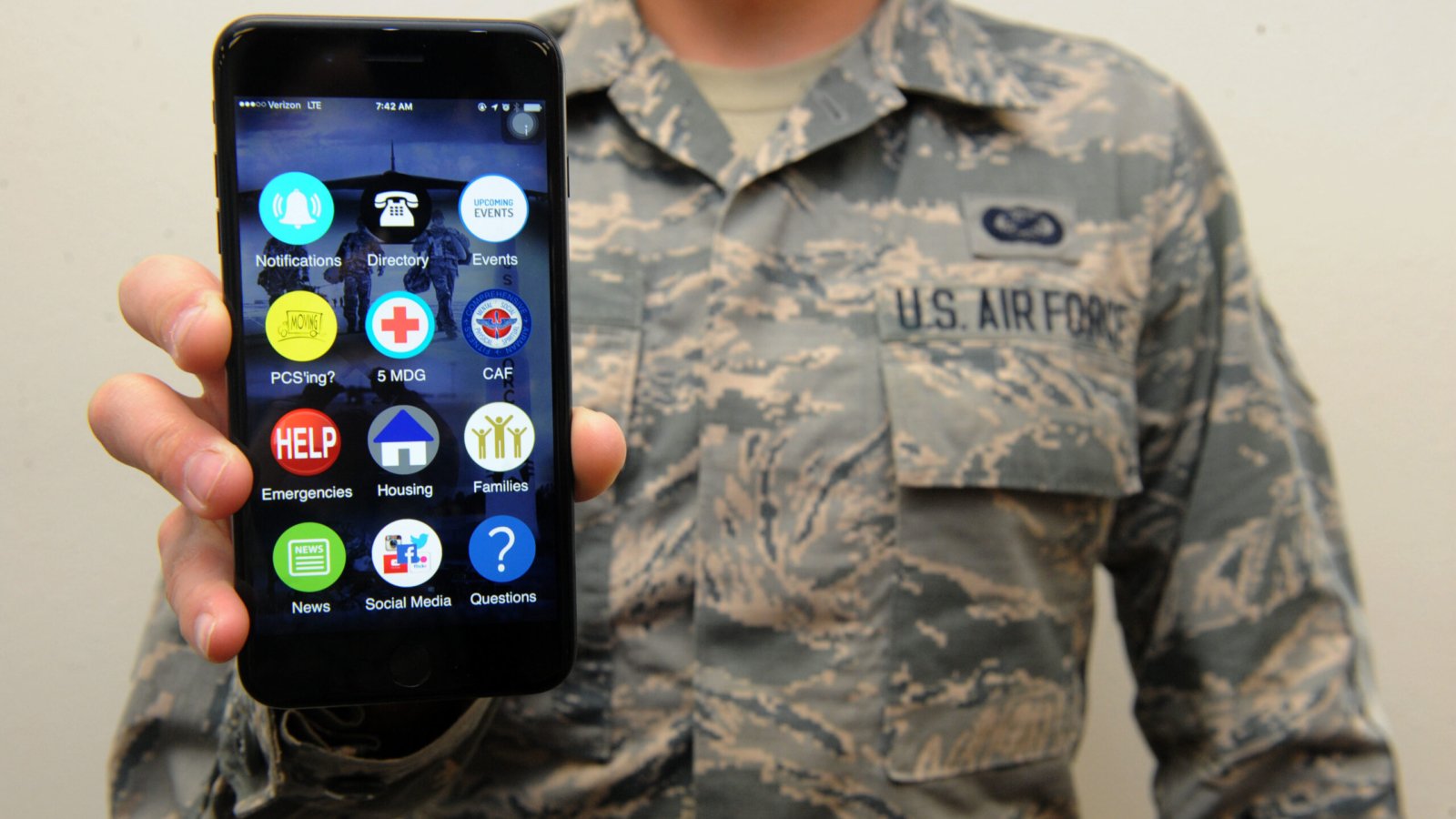Taking the Army’s lead on bring-your-own-device initiatives, the Space Force and Air Force are preparing to enroll service members in the same technology this summer.
Airmen and guardians will soon be able to take advantage of the Hypori Halo Workspace Anywhere program that grants access to government apps, email, NIPRNet, sensitive data, and CAC-enabled websites via personal devices, including a phone or tablet, whether they’re in the office or not.
A spokesperson for Hypori did not give an exact date for enrollment, but told C4ISRNET it’s still on track to begin this summer.
“The Air Force and Space Force are actually already using our platform,” said Jared Shepard, CEO and president of Hypori, at the TechNet Cyber conference presented by the Armed Forces Communications & Electronics Association International late last month in Baltimore. “Now, they’re going to scale.”
Capitalizing on the need for integrated communications and the pandemic-fueled remote work environment, the Army, including its Reserve and Guard components, already began transitioning service members toward Halo, which as of June 11 became the only way Army.mil users can access Army 365 services from a personal device. Shepard said at the conference that 50,000 Army enrollees are using the service since that BYOD effort began as a pilot in 2022. Hypori was also awarded a contract by the National Geospatial-Intelligence Agency on June 6 to give a third of its workforce remote access to secure networks.
“[BYOD] is a top priority for us, and it is a game changer because when our soldiers and airmen are not at the armory, they have to be connected in a secure way,” said Kenneth McNeill, chief information officer of the National Guard Bureau, in a statement February.
Reservists and part-time members of the services especially have limited access to base networks, so giving them the flexibility to complete work from wherever they are will be a boon to the organization, leaders have said.
“In our dynamic environment, the Department of the Air Force is committed to providing user-friendly enterprise solutions which empower the force to work securely in a wide range of operational contexts,” said Air Force Chief Information Officer Venice Goodwine in a statement in March.
The technology also eliminates the need to carry two devices while ensuring their government and personal data are kept separate to minimize liability. The idea of “no data at rest” means there is no risk of compromise if the enrolled devices are stolen or lost, and it ensures that personal information stored on that device is not accessible by the government.
The technology, which also vets users, is also compliant with White House orders that ban TikTok on government devices due to concerns that the social media platform’s Chinese-based parent company, ByteDance, would get access to sensitive data.
“Industry has a responsibility that if it’s doing work for the Department of Defense, that it protects that data,” Shepard said.
Molly Weisner is a staff reporter for Federal Times where she covers labor, policy and contracting pertaining to the government workforce. She made previous stops at USA Today and McClatchy as a digital producer, and worked at The New York Times as a copy editor. Molly majored in journalism at the University of North Carolina at Chapel Hill.



Add a Comment